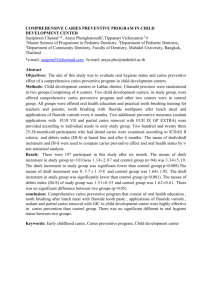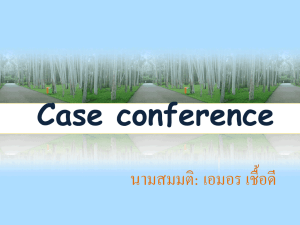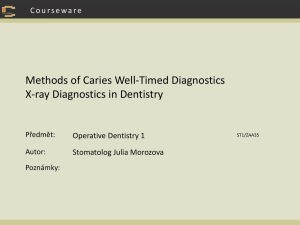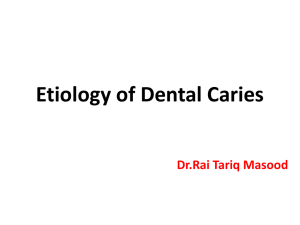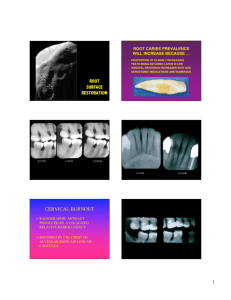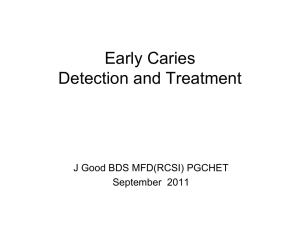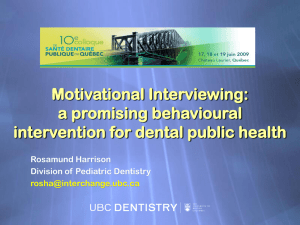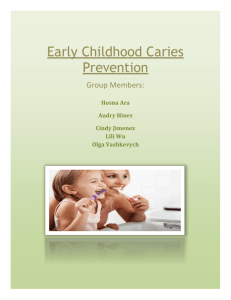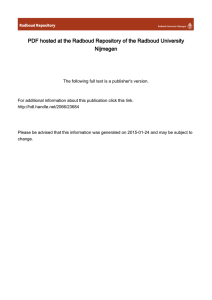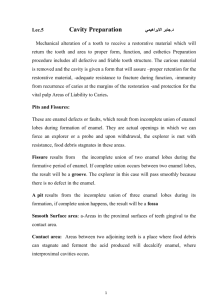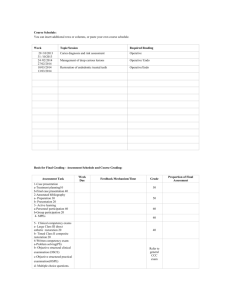CARIES ACTIVITY TESTS
advertisement
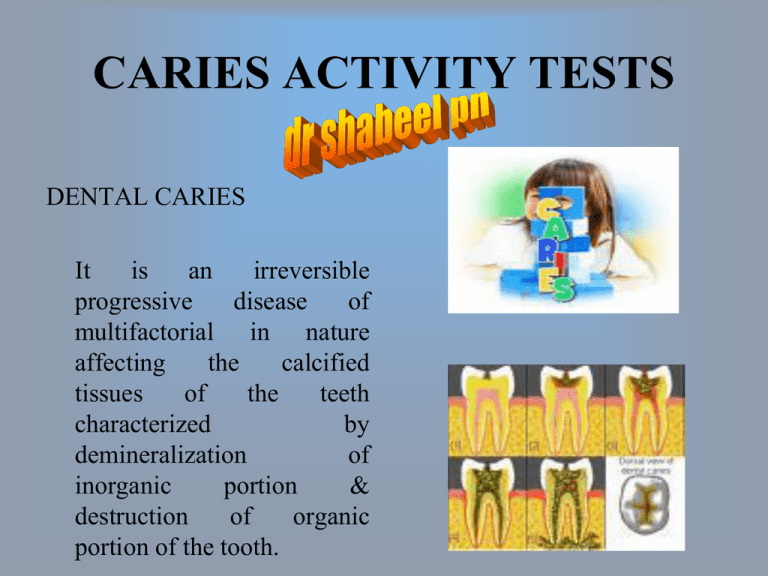
CARIES ACTIVITY TESTS DENTAL CARIES It is an irreversible progressive disease of multifactorial in nature affecting the calcified tissues of the teeth characterized by demineralization of inorganic portion & destruction of organic portion of the tooth. CARIES ACTIVITY • Refers to the increment of active lesion (new and recurrent lesions) over a stated period of time • Caries activity is a measure of speed of progression of a carious lesion. CARIES SUSCEPTIBILITY • Refers to the inherent tendency of the host & target tissue, the tooth to be affected by the carious process REQUIREMENTS OF CARIES ACTIVITY TESTS • Test should be reproducible & valid • There should be good correlation between the caries activity scores & actual caries development • Should be simple • Results should be obtained rapidly, within hours or few days • Should have measurement of mechanisms involved in caries process • Should be inexpensive, non-invasive & applicable to any clinical setting CARIES ACTIVITY TESTS: 1. Lactobacillus colony count test • Saliva is collected by chewing paraffin before breakfast The specimen is vigorously shaken and after that 0.1 cc of sample is withdrawn Dilute and undiluted samples are then spread evenly over a rogosa’s SL agar plate The plate is incubated for 4 days & no. of lactobacillus colonies that developed are • • • counted. No of organisms Symbolic designation Degree of caries activity suggested 1-1000 + Little or none 1000-5000 + Slight 5000-10,000 ++ Moderate More than 10,000 +++/++++ Marked SNYDER TEST • This test measures the ability of salivary microorganisms to form organic acid from a carbohydrate medium. • The classical formula of Snyder’s agar per litre of purified water is pancreatic digest/ casein -13.5 gm yeast extract -6.5 gm dextrose -20 gm sodium chloride -5 gm agar -16 gm Bromocresol green -0.029 gm 24 hrs 48 hrs 72hrs yellow yellow Caries activity: marked definite limited Color green Color : yellow : green Caries activity: continue test green continue test continue test ALBEN’S TEST • It is a modified Snyder test • At the time of test 5 ml, tube of semisolid agar is removed from refrigerator but is not heated • The patient is asked to spit unstimulated saliva directly in to the tube. Tube is incubated for 4 days. SWAB TEST • • • • Advantage is no collection of saliva is necessary Valuable in evaluating caries activity in very young children Principle is same as Snyder test The oral flora is sampled by swabbing the buccal surface of tooth with cotton. REDUCTASE TEST • This test measures the activity of reductase enzyme present in salivary bacteria • The sample is mixed with fixed amount of diazo-resorcinol • The change in color after 15 min is taken as a measure of caries activity color Time score Caries activity Blue 15min 1 Non conductive Orchid 15 min 2 Slightly conductive Red 15 min 3 Red Immediately 4 Moderately conductive Highly conductive pink Immediately 5 Extremely conductive ENAMEL SOLUBILITY TEST • It is based on the fact that when glucose is added to saliva containing powdered enamel, organic acids are formed • Organic acid decalcifies the enamel, resulting in an increase in the amount of soluble calcium • The extend of increase of calcium is a direct measure of caries activity SALIVA FLOW TEST • Flow rate is determined by collecting paraffin stimulated saliva in a test tube over 5 min • Severely decreased flow is related to caries susceptibility • As salivary flow rate decreases viscosity increases PATIENT EDUCATION WITH METHYL RED • A simple and effective technique that may be of assistance in educating child patient to the problem of dental caries control involves the use of aqueous solution of methyl red • Indicator dye changes colour in the pH range from 6.3(distinct yellow) – 4.2(red) • Aqueous methyl red is then applied to the surface of the tooth with dropper • Red colour is developed in the area of plaque accumulation • This is interpreted to patient as evidence of continuous acid formation
